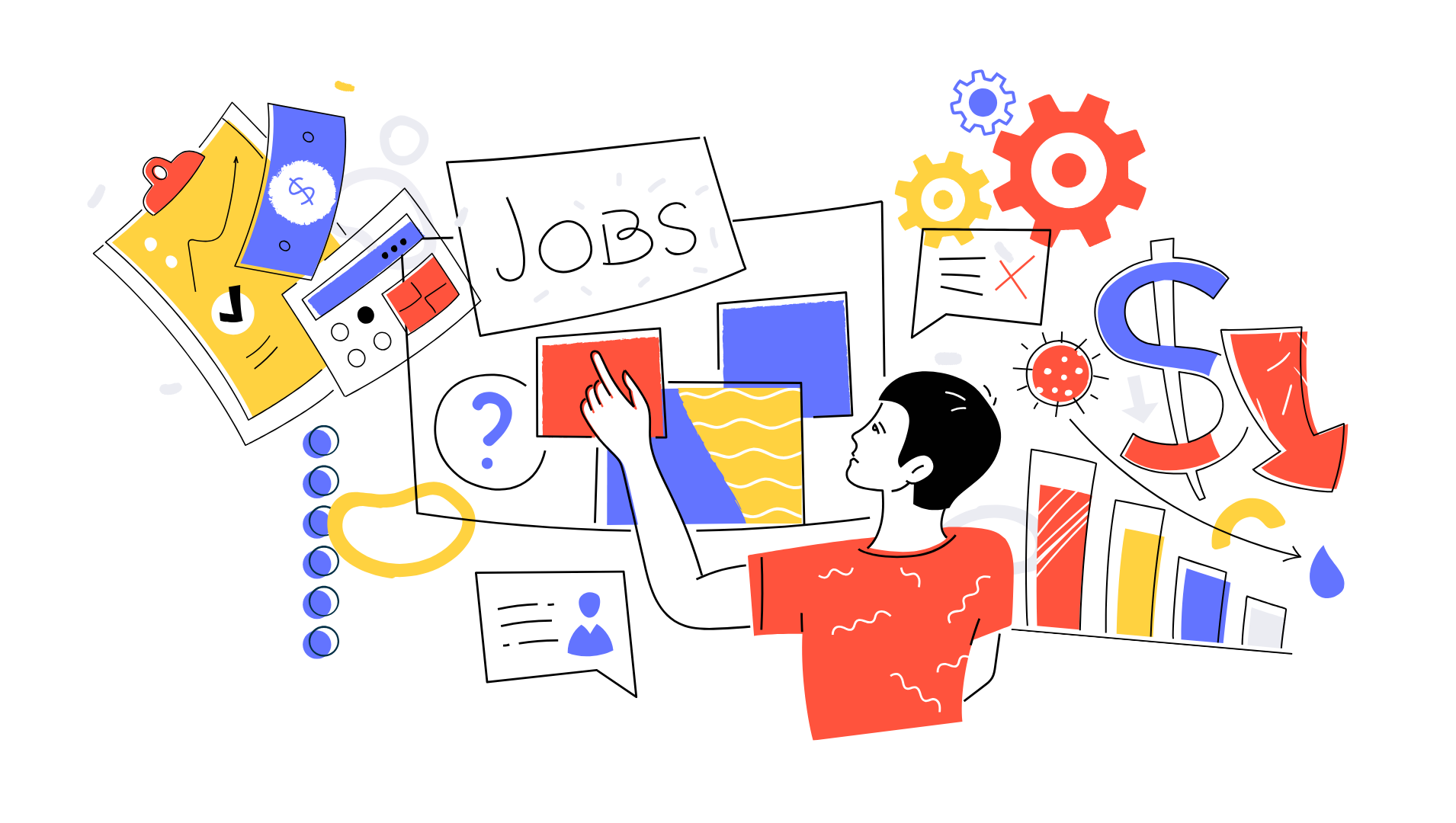Navigating the rapidly-changing job market

The world is complicated and ever-changing. Usually, young people are the first to bear the brunt of unprecedented changes and shifts in the current world order. Be it the onset of climate change, the birth and acclimatisation of artificial intelligence (AI), or the consistently worsening state of geopolitics and declining global peace — young people are most vulnerable to the impacts of these changes, and they must deal with the consequences for the longest. Despite that, society still struggles to understand young people; their identities, their decisions, and the motivations behind their choices.
The Youth Anxieties series by Star Youth will thus, bring forward one such issue every month, through articles and musings, written by young people navigating through life and its many challenges.
The youth today are entering the workforce during a time of overwhelming technological, economic, and social change. The career guidance they received from their parents, teachers, and mentors is far removed from the reality they're facing as fresh grads.
On average, people can expect that two-fifths of their existing skill sets will be transformed or become outdated over the 2025-2030 period, according to the World Economic Forum. The list of fastest-growing skills includesAI and big data, followed by networks, cybersecurity, and technology literacy. In addition to being tech-savvy, resilience, creative thinking, lifelong learning, curiosity, along with flexibility and agility, will continue gaining prominence over the 2025-2030 period.
Half of all employers already plan to reorient their businesses after the emergence of AI. Two-thirds of all employers, on the other hand, plan to hire talent with specific AI skills, while 40 percent predict that their workforce will be reduced given AI's proficiency at automating tasks.
Unsurprisingly, the industry most affected by AI is the one where its genesis occurred. For years, the youth were pushed towards pursuing their studies and professions in computer science, as it was seen as a safe and lucrative option. This, in turn, saw the number of Computer Science majors mushroom across universities everywhere. However, recent layoffs and hiring freezes by tech companies indicate that "learn to code" will no longer be anyone's go-to advice.
"Oversaturation has made competition skyrocket in the last couple of years," explains Zubaida Zahid Runee, a Computer Science and Engineering (CSE) student of Korea University in Seoul. "It's important to stand out. This is why I decided to make my major more interdisciplinary by pursuing Brain and Cognitive Sciences to complement my Computer Science degree."
Many experts argue that fluctuations in the labour market are common and that it is too soon for AI to be causing disruptions of this scale. With that said, it's not only young coders who should be wary of new technology; many entry-level jobs are at stake as well. Beginner roles often contain a lot of drudgery – the perfect candidate to be automated by AI systems. The Guardian reports that such roles have been reduced by a third over the past two and a half years. This is a significant development considering early work experiences act as crucial stepping stones for young people breaking into the workforce. They offer new workers exposure to the habits, norms and expectations of the professional world.
If we travel a bit further back, we can see ripple effects of the pandemic in the employment landscape. Covid-19 threw an unexpected wrench in young people's plans, changing market trends more quickly than anyone could have anticipated. The labour market disruptions during this time included the rise of remote work, unemployment, job changes, and substantial income loss. The onset of the pandemic also caused a large number of sectors of the economy to collapse.
Some are taking these transitions in stride, however. Sarah*, who has recently started her internship at a multinational company, states, "Jobs in the business world, which required little technical knowledge, now demand strong skills in tools like Microsoft Power BI, Tableau, Google Workspace, and various customer relationship management (CRM) platforms. But there's also increased flexibility now, with more remote positions and hybrid offices allowing for a better work-life balance."
While technological advancements may be revolutionising the job market faster than ever, the demographic considered the first digital natives may be in an apt position to tackle it. Since Gen-Z has grown up in a completely digital age, their innate understanding of technology could be leveraged to their advantage in the employment scene. They also have unparalleled access to information, including career prospects, salary ranges, and potential risks in their fields of interest.
Nevertheless, adapting to these frequent changes means workers will have to learn to reinvent themselves constantly just to remain competitive. Agility and continuous education will be necessary to survive in a workforce that requires you to be on your toes.
*Name has been changed upon request for privacy



 For all latest news, follow The Daily Star's Google News channel.
For all latest news, follow The Daily Star's Google News channel. 
Comments